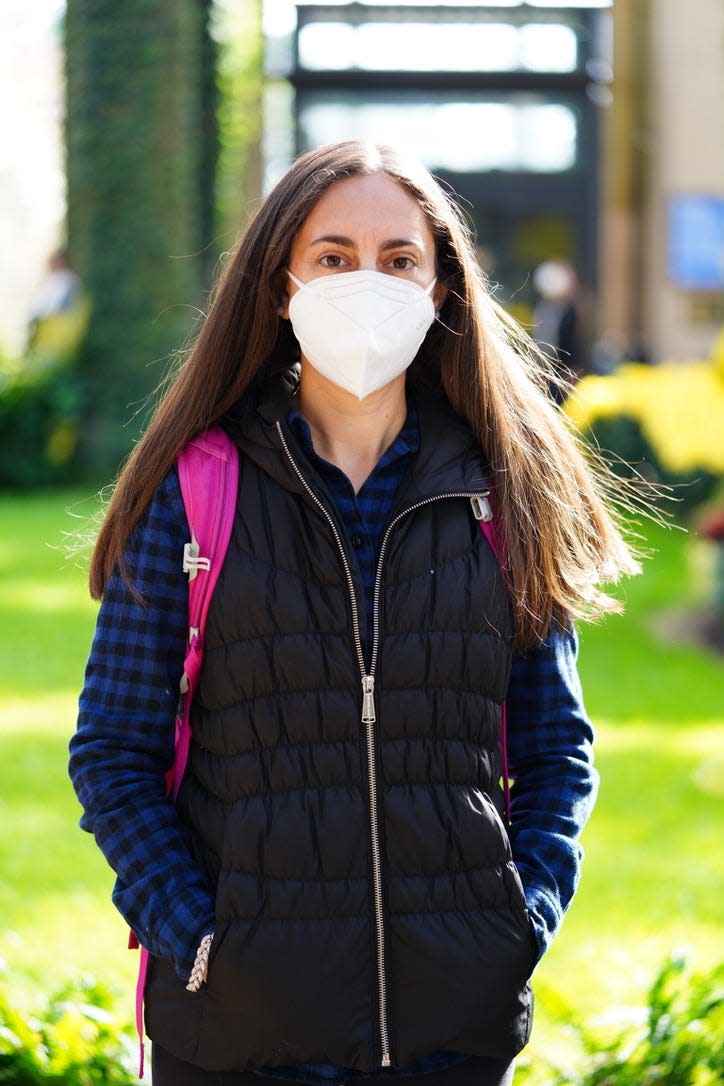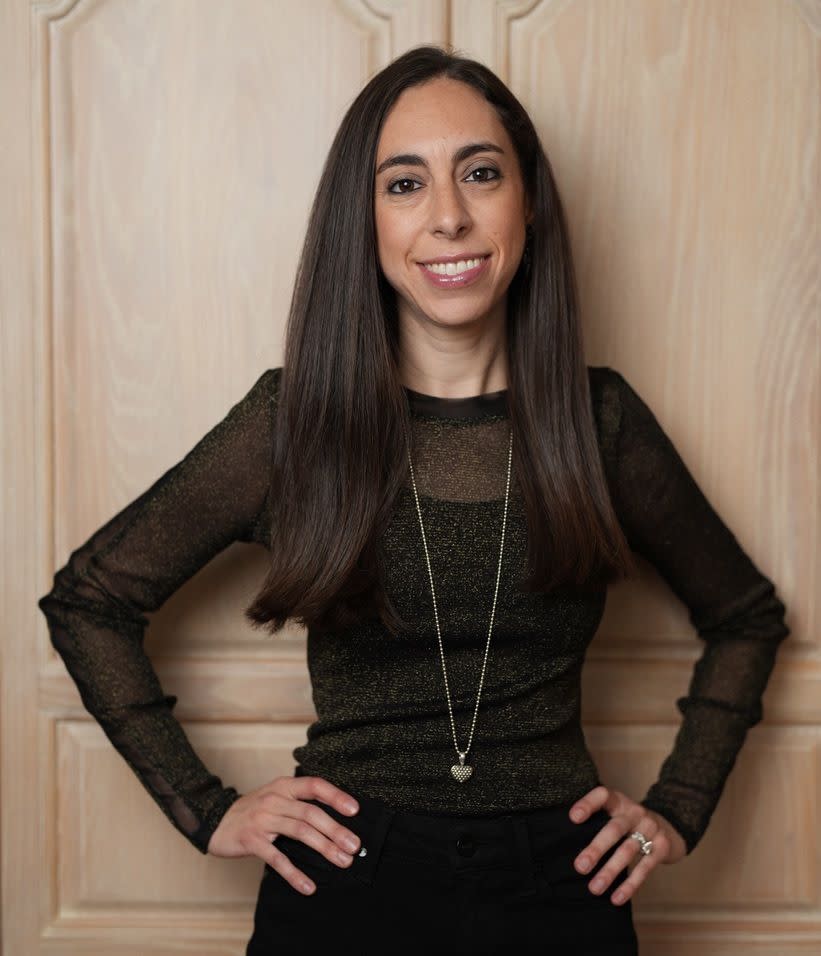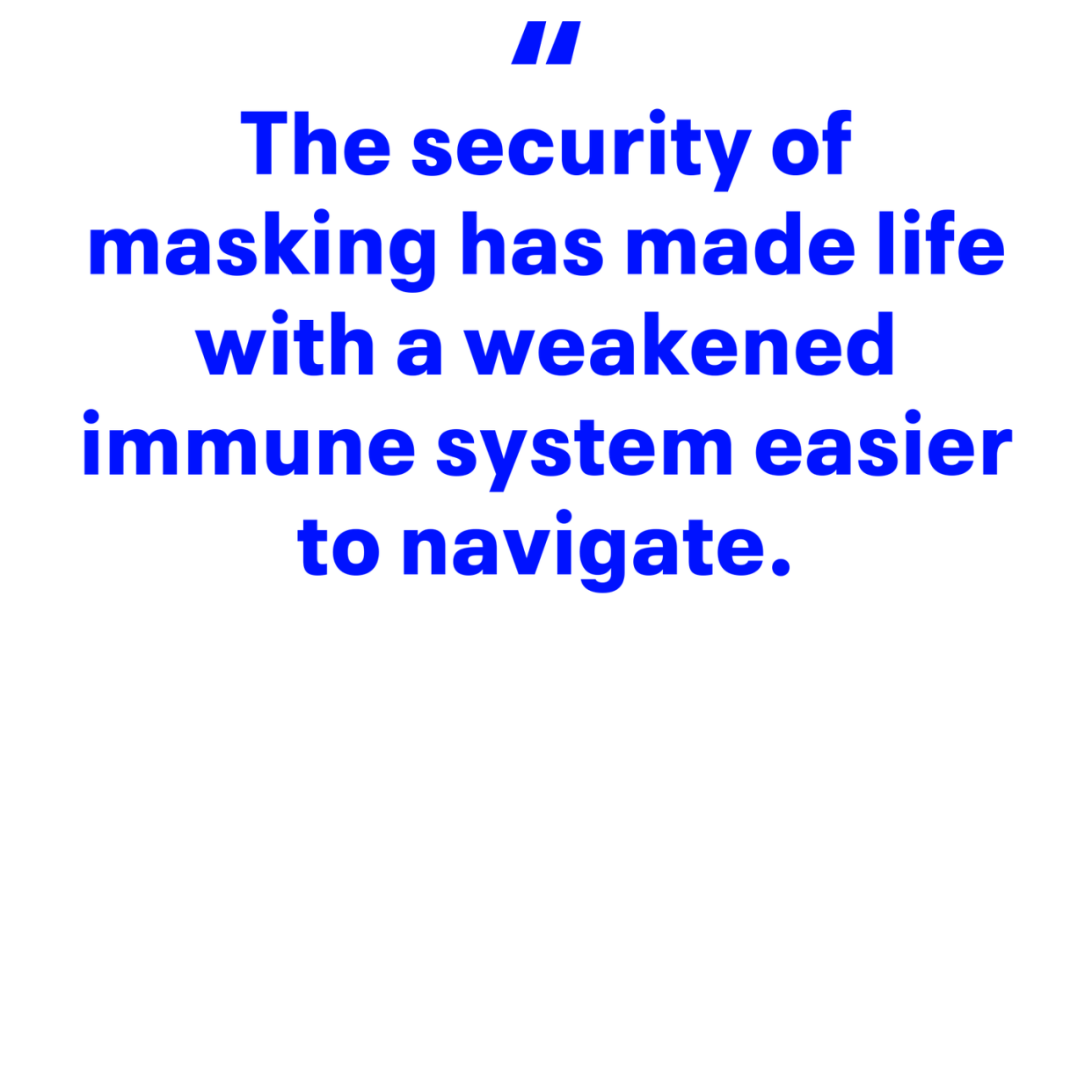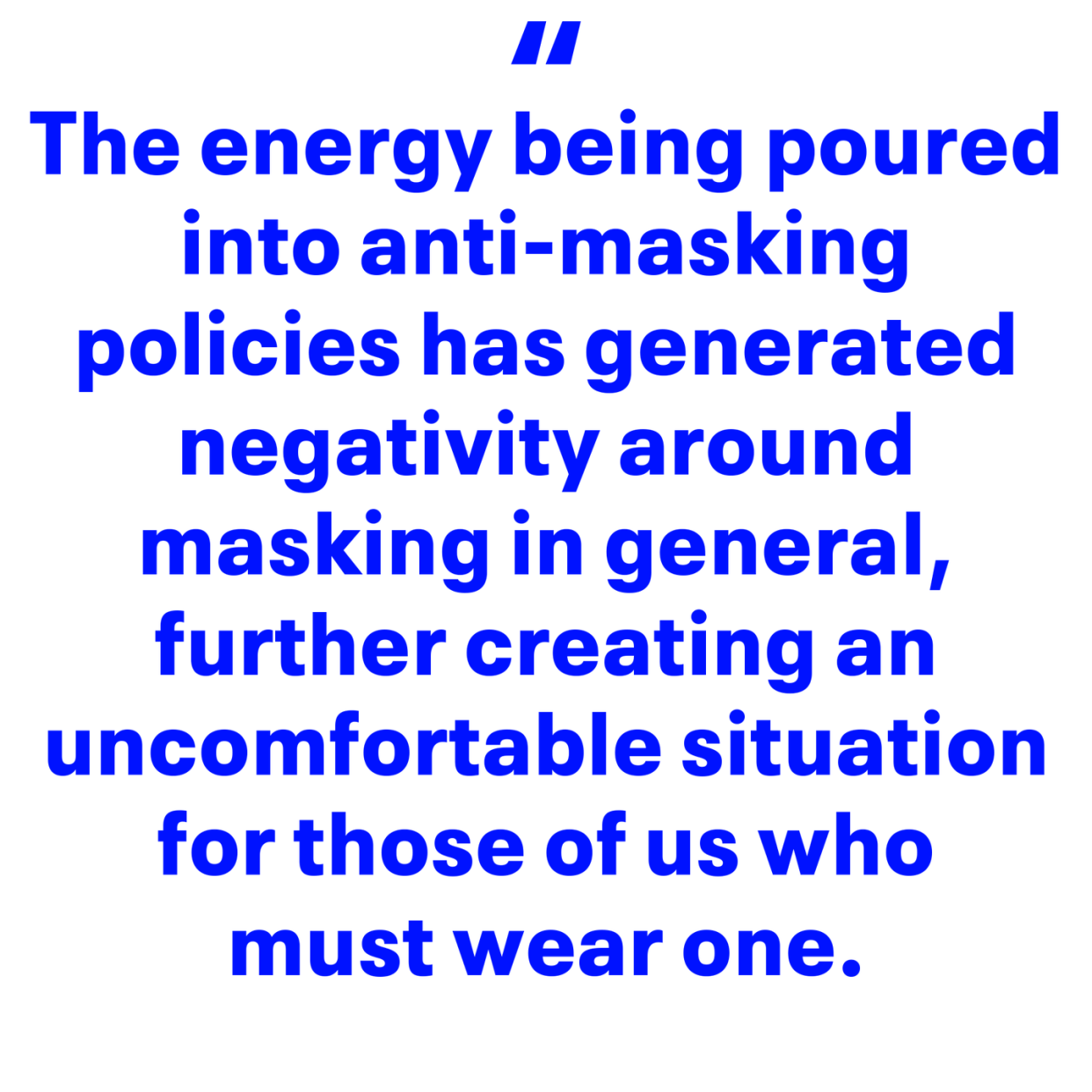I'm Living With MS. Here's What a Mask Ban Would Mean for My Health.

I’d postponed having my hair cut for months because having someone breathing within my personal space poses a risk to my health. Yesterday, I gave in. There I was, after finally mustering enough courage to sit in the chair for this routine act of self-care, when a wet cough echoed through the salon.
My hair stylist was fighting an illness, one that may inconvenience him. But to me, getting sick could mean an exacerbation of my multiple sclerosis (MS), the symptoms of which are profound fatigue, weakness, problems walking and simply functioning. It takes weeks before I can (hopefully) fight an infection off completely and feel well again.
But despite these worries, I remained calm, knowing I was doing what I can to protect myself. I was wearing a mask.
No "back to normal" for me
I don’t feel comfortable requesting that others mask around me, so I didn’t ask my stylist to wear one, but studies have shown that depending on the fit, quality medical masks protect the wearer from 47 to 90% of the particles generated by a simulated cough, according to a study in the American Society for Microbiology Journal. That is enough to calm my fears and get me through doctor's appointments, volunteering in my sons' classrooms, grocery shopping and the haircut I needed before our planned family vacation.

Life is complicated when your immune system is compromised. I was diagnosed with MS in 2017 after 13 years of pleading with doctors for an answer to my symptoms. Overnight, I learned that I belonged to the community of people moving through life without a fully functioning immune system. The medication that enables me to continue walking also destroys vital cells that produce antibodies to fight infection. Becoming infected with a virus not only means it will take longer to fight off, but that I am at risk of a disabling MS flare.
As horrible as the pandemic was, it did bring me masks, an option I hadn’t previously thought of. Before then, I was as cautious as I could be, washing my hands regularly and keeping my distance, but I didn’t have a mode of protection that helped across environments. Entering my children's school, taking them to museums and even going to the infusion center for my MS medication filled me with anxiety. I felt like a virus was always lurking in my midst, waiting to infect me. The security of masking has made life with a weakened immune system easier to navigate.
Thanks to masks, I’ve remained healthy when my two boys have been sick. I’ve entered congested indoor spaces confidently, knowing that I’m protecting myself with a method backed by science. I have continued wearing a mask indoors even though almost everyone else is “back to normal.” I feel safer in heavily populated indoor spaces than I did before the pandemic.

Making masks illegal
But in some places, the simple act of protecting myself is already a crime. In North Carolina, for example, a bill has passed making it illegal to mask in public unless you have a contagious disease; there is no exemption for those who wish to prevent disease.
Recently, mask bans have been proposed in numerous big cities — including New York and Los Angeles. In the shadow of the pandemic, anti-masking laws seem foreign, but they date back to the 19th century when they were established to prevent groups — including the Ku Klux Klan — from terrorizing citizens. In fact, in New York, not far from where I live, this law wasn’t repealed until the COVID-19 pandemic. With everything we’ve been through since 2020, I never imagined wearing a mask might be illegal again.
While clarity is certainly needed over the parameters of acceptable behavior during protests — and of course, no one should hide behind a mask to commit violence — bans on mask-wearing have the potential to put people like me in danger. They would leave those most susceptible exposed to infectious disease in heavily populated spaces. As the world assimilates to life post-pandemic, the immunocompromised community remains on high alert because COVID continues to evolve, and people like me are less able to fight it off.
Even if a law might allow mask wearing under certain conditions — for example, for religious or health reasons — it would be impossible to judge the legitimacy in each individual case in the moment and would result in unfair suspicion and fraught disputes with law enforcement. New York governor Kathy Hochul is considering implementing a mask ban on public transit — a high-risk environment in which people are crowded together. Store owners are also calling for mask bans — or imposing them on their own.
These bans go against individual rights and freedoms, as well as the medical data. Around 6.6% of American adults are immunocompromised. The right to protect ourselves from illness shouldn’t be something we have to fight for, and reinstating a pre-civil war statute and banning the one mode of protection we have come to rely on cannot be the solution to violence or property crime.
While I don't have all the answers, one thing is clear: The energy being poured into anti-masking policies has generated negativity around masking in general, further creating an uncomfortable situation for those of us who must wear one. Banning masks will pose a threat to people like me.

We have a right to protect ourselves
MS is a progressive illness that changes over time. With today's advanced treatments, regular exercise and self-care, the disease can remain stable for some people. In addition to medication, I use an exercise bike daily, eat a healthy diet and get as much sleep as possible. I work hard to maintain my current level of imperfect functioning, and becoming sick can deplete my energy and strength overnight. The fear that I may remain depleted for the rest of my life weighs on me daily. Masking lessens that burden.
If you want to support people who are immunocompromised, wearing a mask when you’re under the weather — or offering to if you see someone else who is — not only protects us, but supports our right to protect ourselves.
Waking up healthy isn't something I can take for granted. I wish something as simple as getting my hair cut couldn't potentially leave me weakened, struggling to walk far and unable to enjoy our upcoming family vacation. But that is my reality and wearing a mask allows me to carry on, despite the complicated challenges. It's a right that should never be taken away.
You Might Also Like
